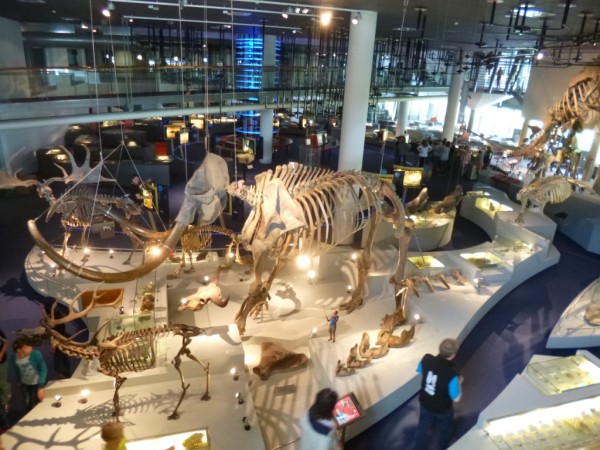<<Warning! Philosophical musing ahead!>>
The other week, I participated in one of the monthly #onsci science communication chats on Twitter. (If you have no idea what I’m talking about at this point, try this article as a general intro to hashtags or this one for how they are used in science communication).
At the beginning of the #onsci chat, it is customary for people to introduce themselves: who they are, where they work, how they fit into the overall science communication picture. I described myself as an “ex-scientist”, which a couple of people pulled me up over: “How can you be an ‘ex-scientist’?” “You’re doing a PhD, doesn’t that count?” These questions made me ponder what a scientist is, and why I don’t quite feel comfortable claiming the title anymore.
In my undergraduate years there was no question – I was definitely a scientist. My first degree was in Biochemistry, including an Honours year that was spent almost entirely in the lab. So if a scientist is someone with a tertiary qualification in science, then I definitely am one. And I’m sure my first degree has shaped my thinking and view of the world in ways I can’t articulate and am possibly not even fully aware of. My appreciation of this has increased over the past year as I have been reading about research philosophy as part of my PhD. It has made me think about what I believe knowledge is, and how we come to know it (i.e., epistemology). Science takes a particular view on this point, and it is so intrinsic to the way science is done that it is pretty much taken for granted.
After my first degree, I completed a Graduate Diploma in Science Communication. So still pretty sciencey. But this set me on a career trajectory that took me away from the lab and into (broadly speaking) the museums sector. Museums span many disciplines but they often fall into arts portfolios, and so these days it’s just as likely that I’ll find myself at a table of arts professionals as rubbing shoulders with scientists. Sometimes I feel stuck in the middle: not “sciencey” enough to be a proper scientist, but not “arty” enough to feel fully at ease saying I’m an arts professional myself.
I was wondering whether my reticence to claim the ‘scientist’ title was something of my own making. However, an unrelated conversation last week reinforced my suspicion that many people (including scientists) have a fairly narrow conception of what a scientist is: essentially it is a researcher on an academic career track in the natural sciences. Anyone who strays from that path, no matter how useful or valuable their contribution to the field, is somehow ‘lost’ to the science cause and is therefore not a ‘real’ scientist.
This has real implications for science and science communication. If science builds such a rigid fence around itself, then ‘scientists’ will never be able to fully participate in broader social and cultural conversations – for this would increasingly take them away from the lab bench, and then by definition they are not proper scientists any more. It will also have implications for the people that study science at tertiary level – science degrees will only be attractive to people who envisage a career in the lab. Thus our future business and political leaders will be less likely to have science qualifications, as their ambitions will have taken them to different disciplines. In practice, this means that many of them will not have studied any science beyond year 10 or 11. This creates a distinct imbalance in the knowledge base of our key decision-makers.
So I think the current definition of ‘scientist’ is too narrow. Although I’m struggling to think about how broad to cast the net without it becoming so broad as to be meaningless. This struggle is not a new one – C.P. Snow described the artificial divide between arts and humanities over 50 years ago. And the definition of ‘science’ varies between cultures and languages too as I understand it, for instance the German word Wissenschaft seems to encompass a broader view than ‘science’ as its nearest English equivalent.
So the bottom line is that in many people’s eyes, I probably don’t count as a ‘real’ scientist. However, even if I’m not studying within a science faculty, my PhD uses science (particularly Psychology and Statistics). So maybe I can be less shy about making the claim. Perhaps if enough of us less-conventional types start calling ourselves ‘scientists’ too, then we can help bring science (however it is defined) more fully into the national conversation.

It’s an interesting question that popped up on Twitter yesterday as people responded to a radio programme claiming Margaret Thatcher was a scientist. I think in some cases it can be a relative term (this in turn will no doubt prompt a post on my own blog).
I think you’re right about the German term Wissenschaft, which (very) loosely translates to “stuff that is knowable”, within which there are Naturwissenschaften, Sozialwissenschaften, Wirtschaftwissenschaften (economics; try saying that with your mouth full!) etc.